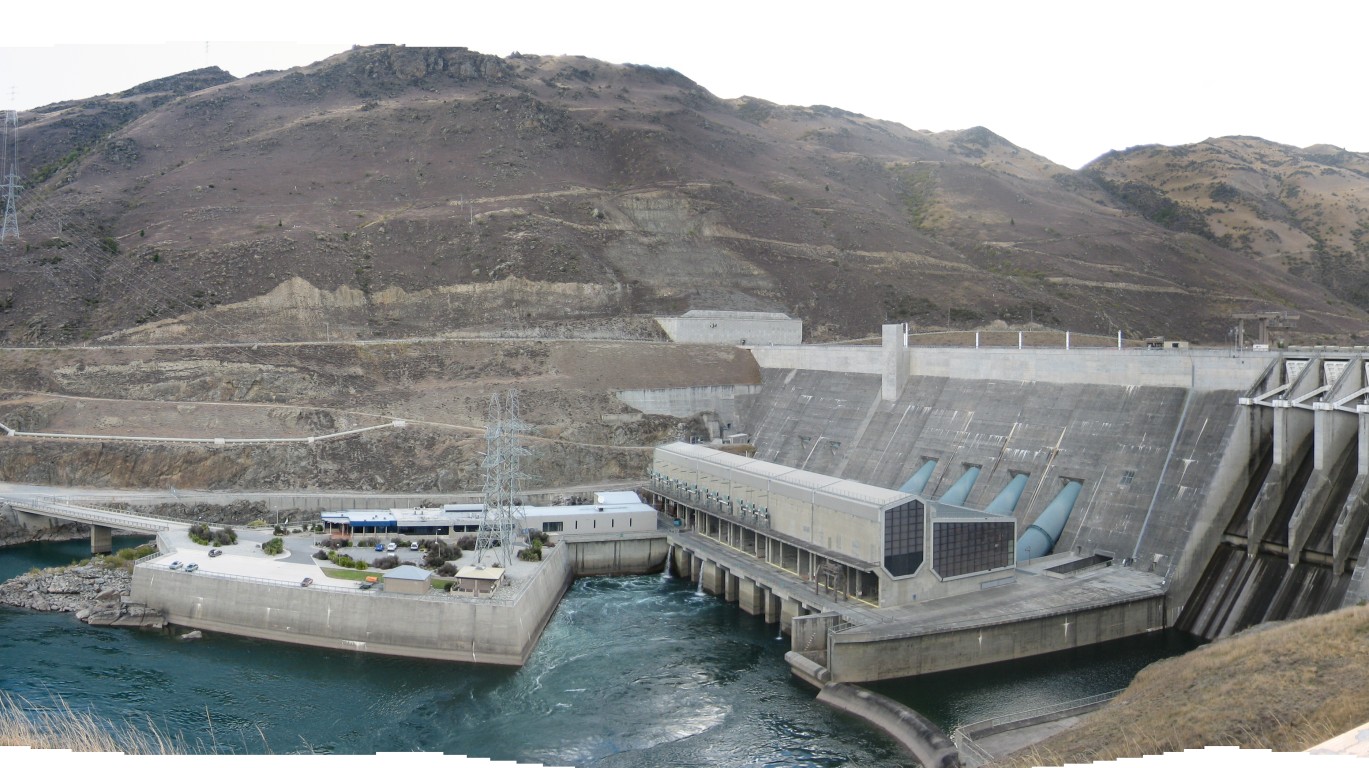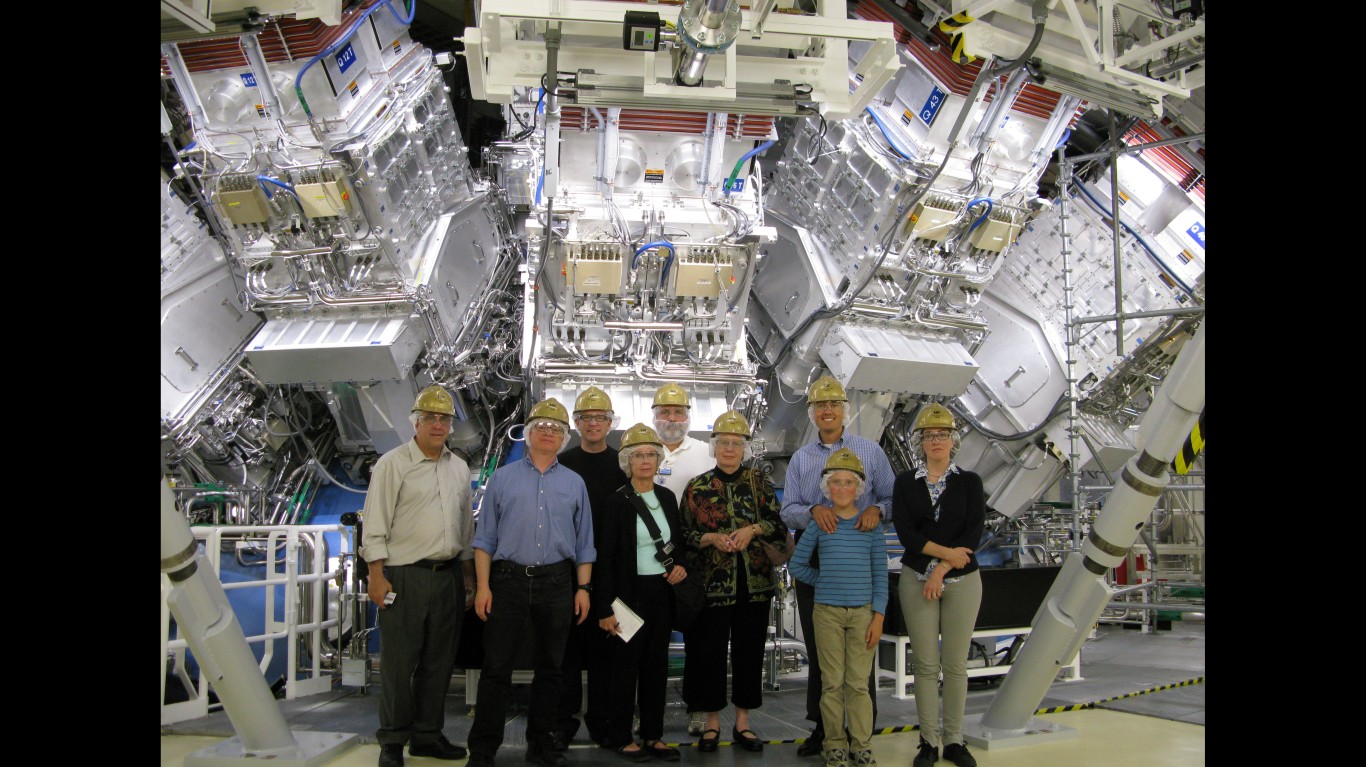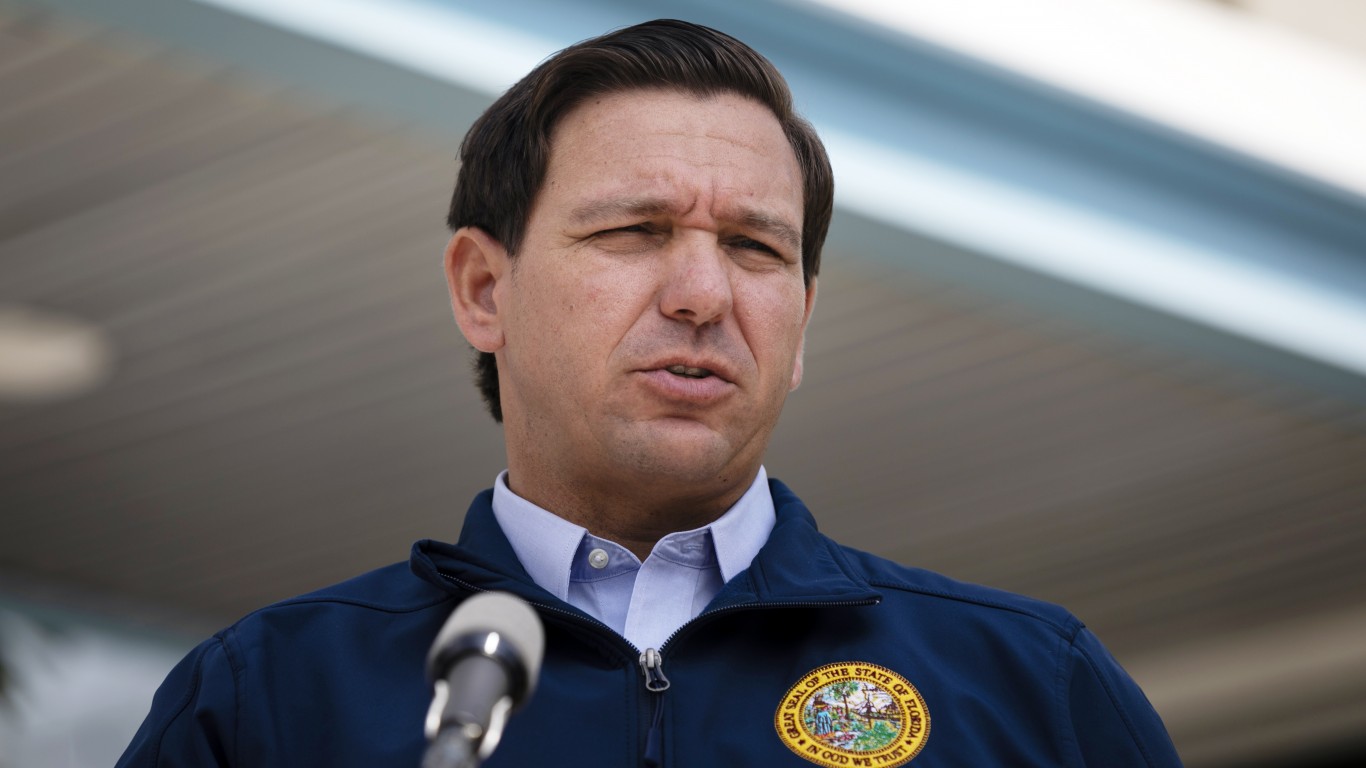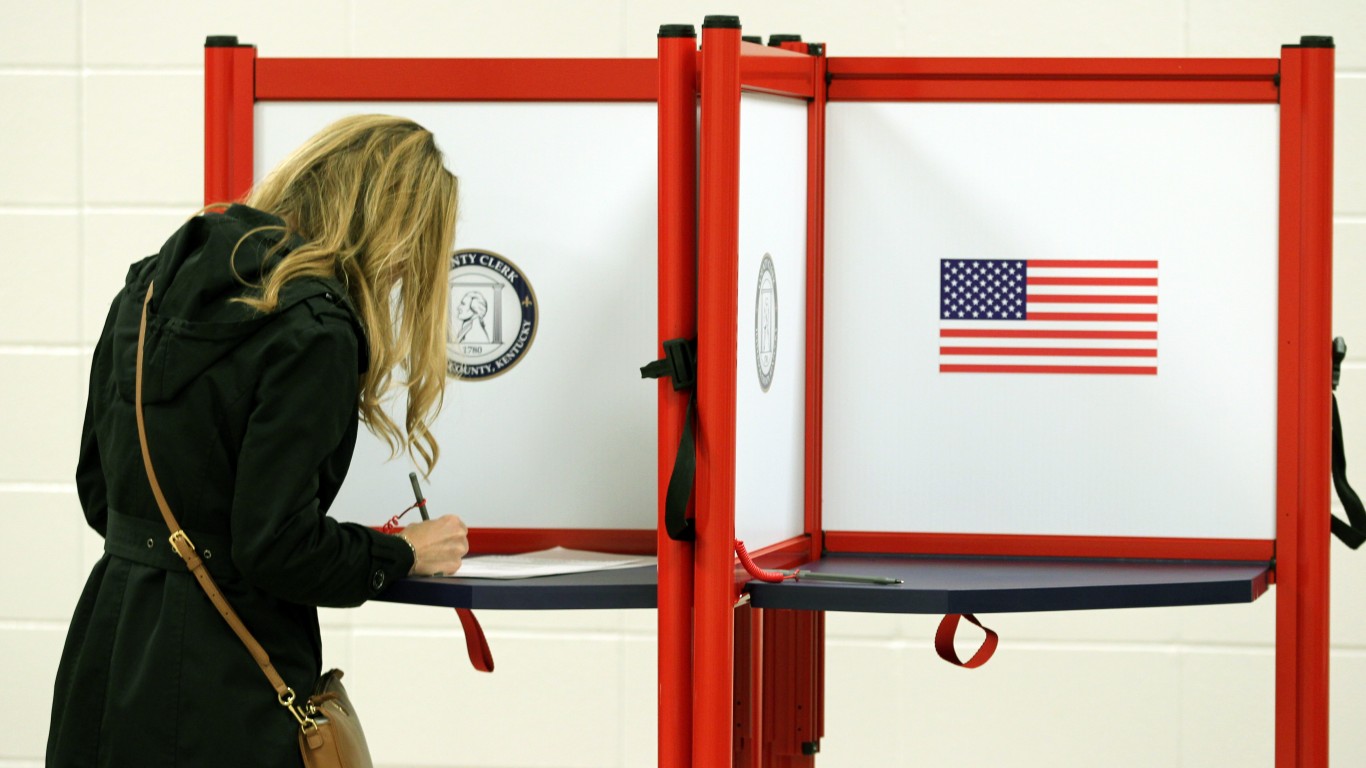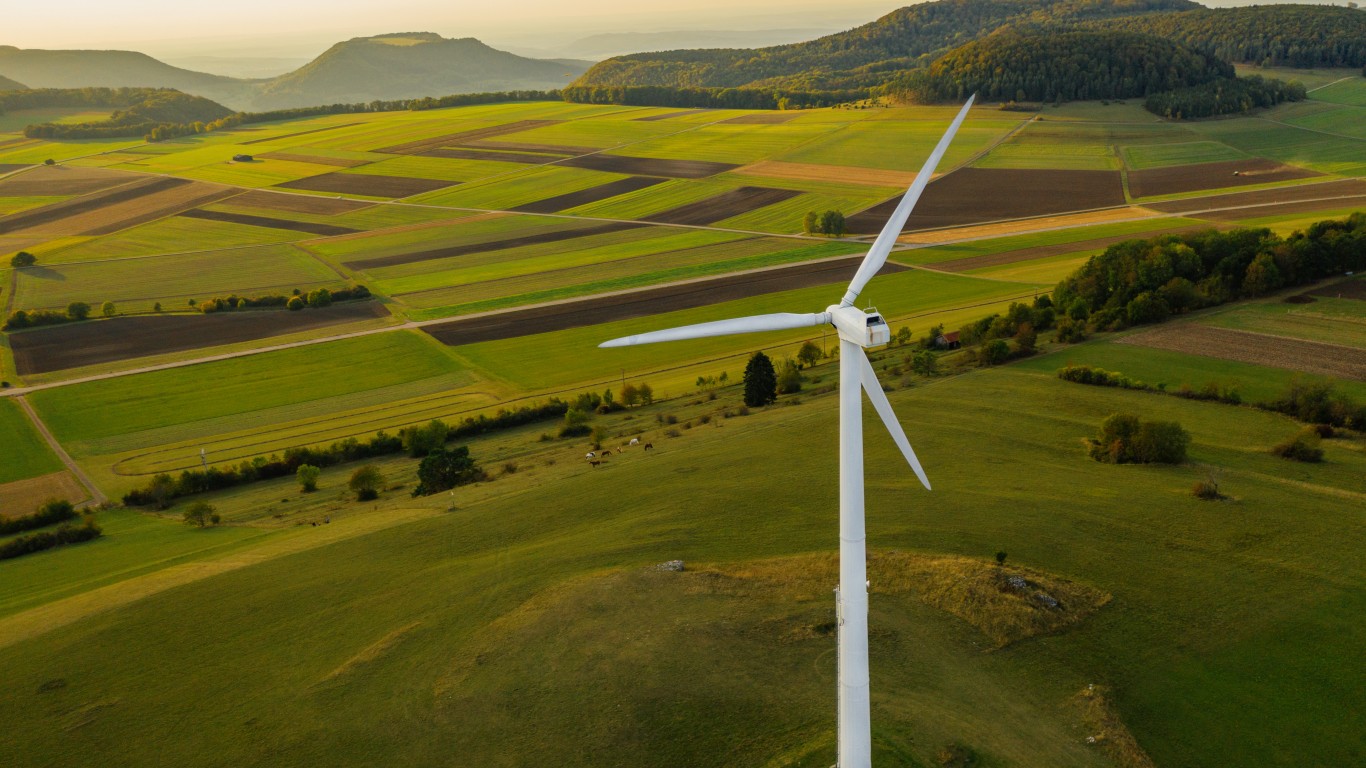
The almost daily drumbeat of climate-change news can be grim. Scientists at NASA’s Goddard Institute for Space Studies said this past July was hotter than any other month in the global temperature record. A report published in the journal Science in May said more than half of the world’s large lakes and reservoirs have shrunk since the early 1990s, chiefly due to climate change effects. Climate change may have played a role in the spread of the Maui wildfires that killed at least 99 people, as of this writing, the deadliest wildfire in U.S. history. (These are the worst natural disasters in U.S. history.)
But not all the climate news is dire. 24/7 Wall St. compiled seven of this week’s biggest climate stories from news outlets around the world. We hand-picked stories that are considered major wins in the struggle for climate justice by activists and local communities and governments.
As of Aug. 1, the United States officially banned the manufacture and sale of incandescent light bulbs. The Biden administration approved the largest offshore wind project in the U.S. off the southern New Jersey coast. India is reportedly ahead of schedule to meet its carbon-intensity goal under the Paris Agreement, according to a United Nations report. American scientists at Lawrence Livermore National Laboratory achieved net energy gain in a fusion reaction for the second time. This raises hopes that the process can potentially produce a limitless, clean, and safe source of power to help combat climate change. (These are the U.S. wind farms generating the most electricity.)
See other good news for the climate crisis.

US bans incandescent light bulbs
The United States has officially prohibited the manufacture and sale of incandescent light bulbs as of Aug. 1, 2023. The ban also applies to halogen bulbs and there is a possibility that Compact Fluorescent Light bulbs will also be phased out by 2025. Incandescent light bulbs are being replaced by LED light bulbs, which use less energy and last longer. According to estimates from the Department of Energy, the switch will save American households an average of $100 per year on energy bills, for about $3 billion in total energy cost savings for American consumers.
There are several exceptions to the ban, and people can still use the incandescent light bulbs they already own.
[in-text-ad]
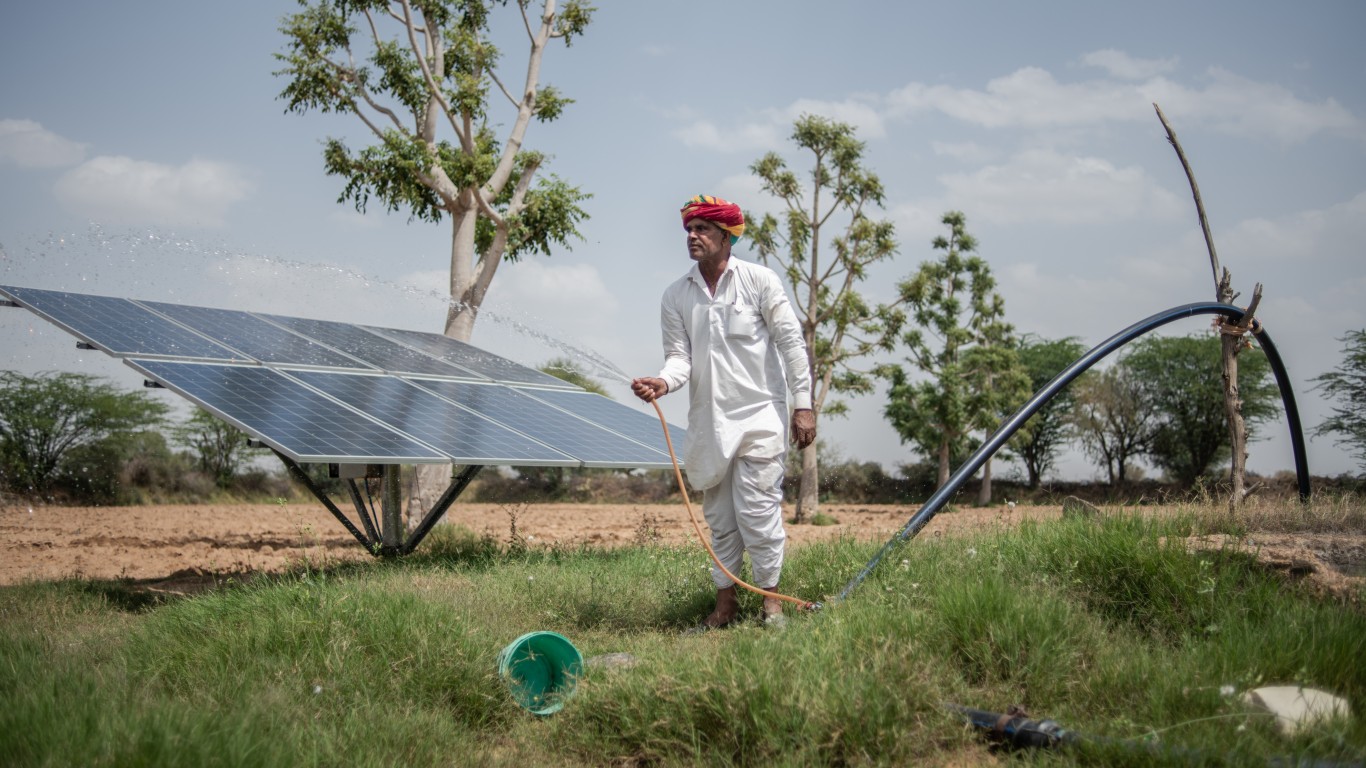
India to meet Paris goal ahead of time
India is reportedly on track to meet its carbon intensity target under the Paris Agreement ahead of schedule, according to a United Nations report published in August. This is largely because India has begun switching to more energy-efficient systems and is using waste to generate energy. India’s greenhouse emissions rate dropped by faster than expected 33% in 14 years as renewable energy generation rose and forest cover increased, according to a report from the U.N. Convention on Climate Change.
According to the report, the world’s second-most populous nation was on its way to reducing emissions intensity by 45% from the 2005 level by 2030.
New Zealand fast tracks 100% renewables
New Zealand’s government announced earlier in August that it will collaborate with investment firm BlackRock in its aim to become one of the first nations to have its electricity grid run completely from renewable energy. New Zealand and BlackRock plan on launching a $1.2 billion fund to increase investments in wind and solar generation as well as battery storage and green hydrogen.
New Zealand’s electricity grid already operates on about 82% renewable energy such as hydroelectric power. The government said its goal is to reach 100% renewable generation by the end of this decade. BlackRock Chief Executive Lawrence Fink has been an outspoken advocate for decarbonization and so-called conscientious capitalism, including environmentally-minded investing.
Just ahead of the announcement, the government also fast-tracked approval for nine solar panel projects and three wind farm projects as part of its effort to transition to clean renewable energy.
Net energy gain in fusion achieved for 2nd time
U.S. scientists have achieved net energy gain in a fusion reaction for the second time, according to the Lawrence Livermore National Laboratory in Livermore, California. The fusion ignition event, which occurred at the National Ignition Facility, produced a higher energy yield than the previous one in December. Nuclear fusion reaction is the combining of two light atomic nuclei to form a single heavier one. The process releases a significant amount of energy because the total mass of the resulting single nucleus is less than the original two, with the mass converted to energy.
The process can be a potential limitless, clean, and safe source of power to help combat climate change, and in the recent experiment, more energy was produced from fusion than the energy used for the experiment. The achievement is seen as a major stepping stone toward making fusion commercially viable.
[in-text-ad-2]
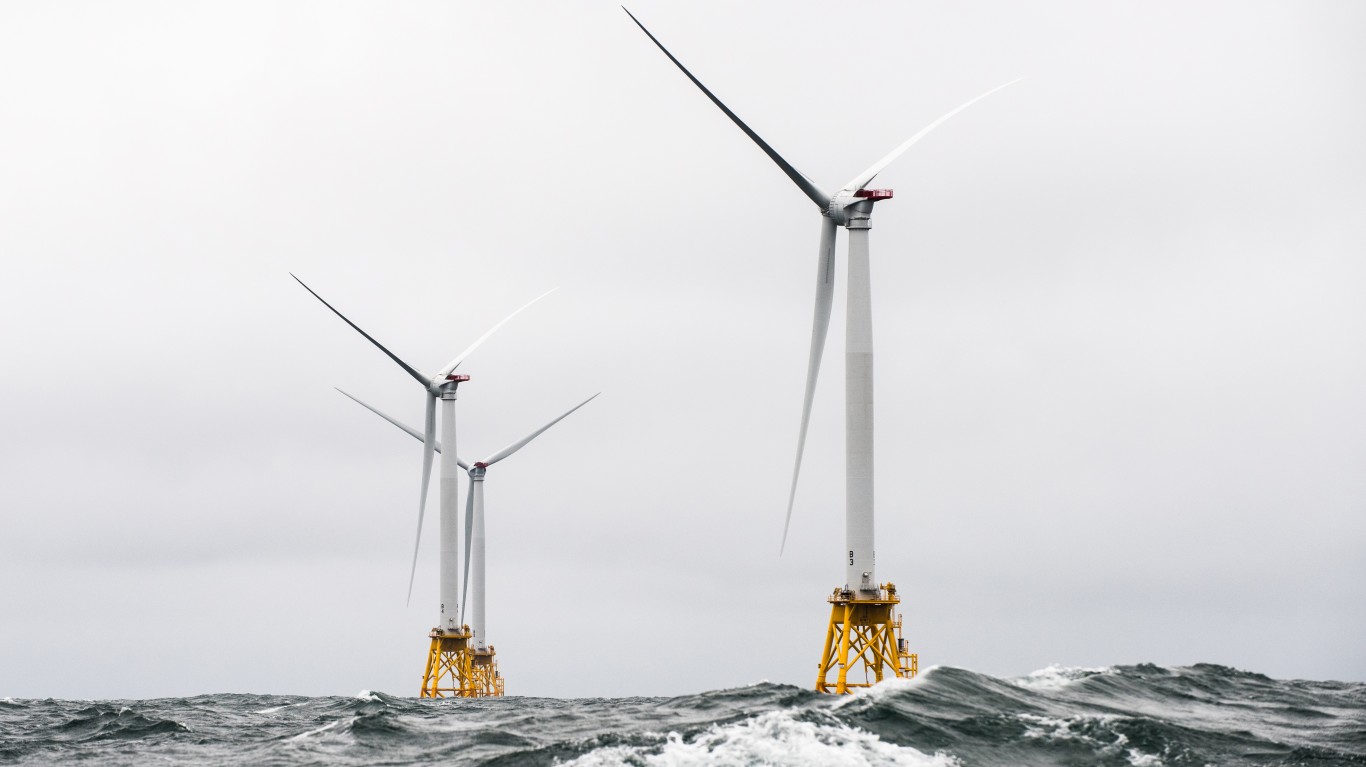
US approves utility-scale offshore wind farm
The Biden administration has approved the largest offshore wind project in the U.S., known as Ocean Wind 1. This offshore wind project could power hundreds of thousands of homes in New Jersey. The plan has faced opposition from Republican lawmakers and residents of New Jersey. Ocean Wind 1 is being developed by Orsted, a Danish energy company, and is expected to generate 1,100 megawatts of energy from nearly 98 wind turbines 15 miles off the coast of southern New Jersey.
The project is expected to begin onshore construction this fall and offshore construction in 2024, with the goal of starting commercial operations in 2025. Construction has already begun for offshore wind projects off Massachusetts and off Rhode Island and New York, which will generate 800 megawatts and 130 megawatts, respectively.
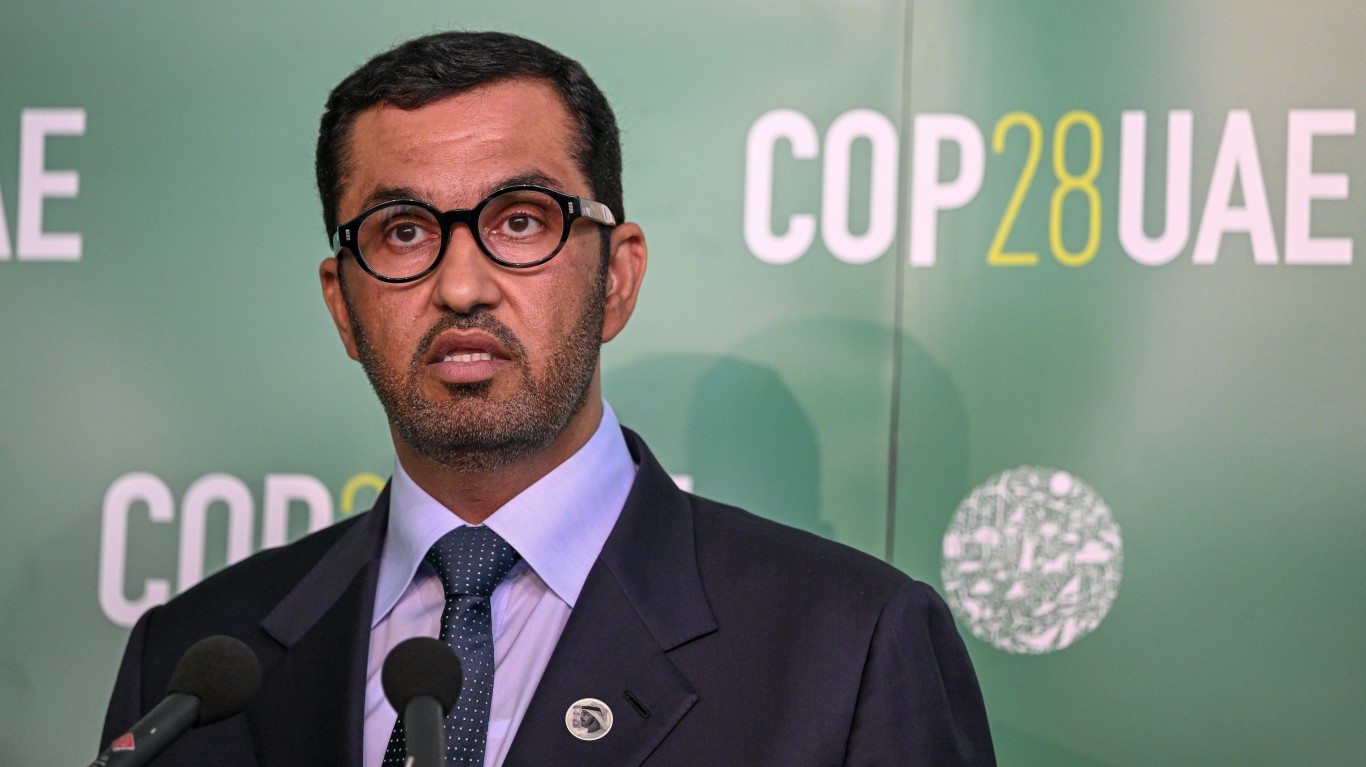
More COP28 greenwashing revealed
Sultan Al Jaber, the president of COP28 (United Nations Climate Change Conference) who is also the CEO of Abu Dhabi National Oil Company, has been accused of “greenwashing” his image. This accusation comes after it was found that members of his team edited Wikipedia pages that highlighted his role as CEO of the oil company. The amendments made by his team included adding quotes that praised Al Jaber as an ally of the climate movement and suggesting editors remove references to a multibillion-dollar oil pipeline deal he signed in 2019.
The UAE government has faced criticism for appointing a fossil fuel boss as head of COP28, an appointment nonetheless hailed by leading climate figures such as John Kerry, the U.S. special presidential envoy for climate. Al Jaber has also been working to promote his advocacy for Emirati investment in green energy. Meanwhile, there have been calls for Al Jaber to be removed from his post as the summit’s president.
[in-text-ad]
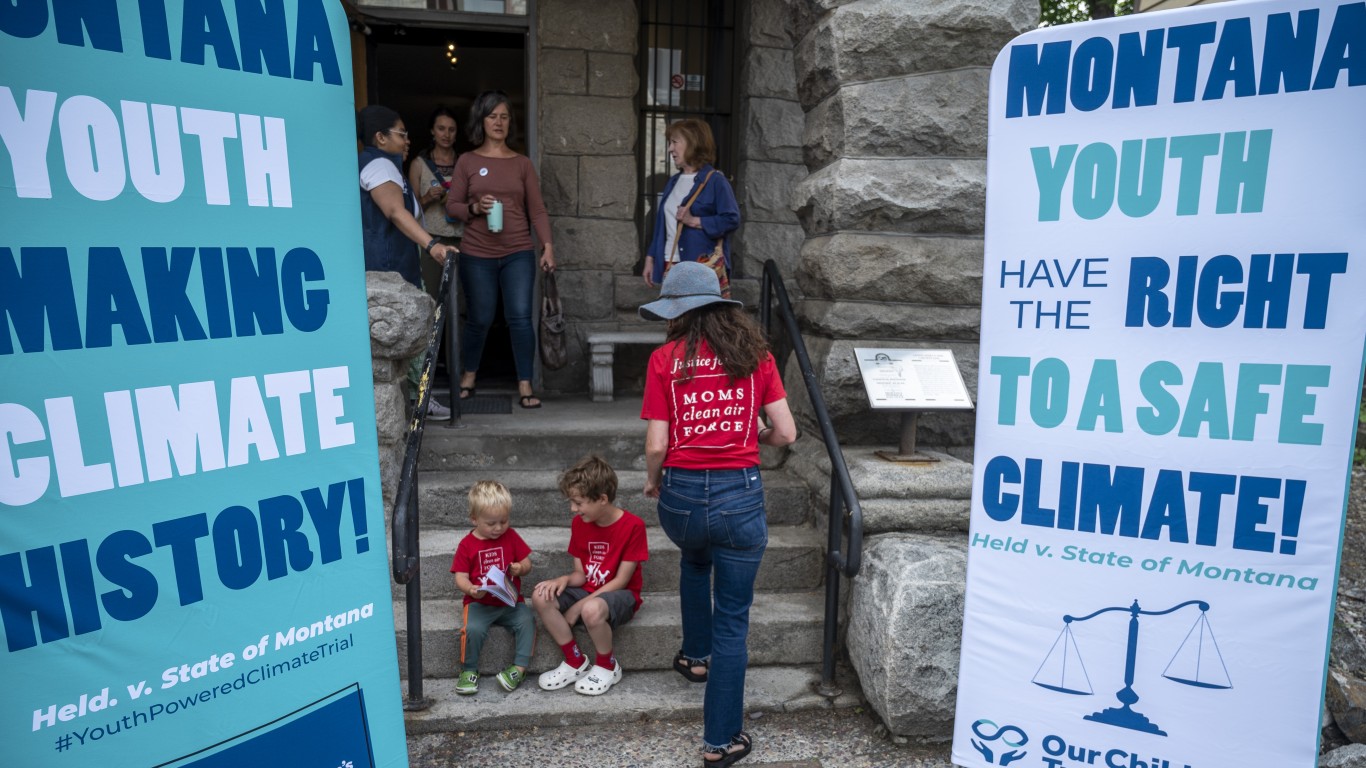
Judge rules in favor of Montana climate activists
A Montana state court ruled in favor of a group of 16 young climate activists (ages 5 and 22) who argued that the state violated their right to a “clean and healthful environment” by promoting the use of fossil fuels. The court ruled that a provision in the Montana Environmental Policy Act that bars the state from considering climate impacts of energy projects is unconstitutional and has harmed the state’s environment and the plaintiffs.
This case was the nation’s first constitutional and first youth-led climate lawsuit to go to trial and could influence how judges approach similar cases in other states. The Montana case will face an appeal to the state Supreme Court.
Even as the number of climate litigation cases around the world has more than doubled in the last five years, youth-led lawsuits in the U.S. have been stymied. At least 14 of these cases have been dismissed, according to a July report from the U.N. Environment Program and Columbia University’s Sabin Center for Climate Change Law.
Travel Cards Are Getting Too Good To Ignore (sponsored)
Credit card companies are pulling out all the stops, with the issuers are offering insane travel rewards and perks.
We’re talking huge sign-up bonuses, points on every purchase, and benefits like lounge access, travel credits, and free hotel nights. For travelers, these rewards can add up to thousands of dollars in flights, upgrades, and luxury experiences every year.
It’s like getting paid to travel — and it’s available to qualified borrowers who know where to look.
We’ve rounded up some of the best travel credit cards on the market. Click here to see the list. Don’t miss these offers — they won’t be this good forever.
Thank you for reading! Have some feedback for us?
Contact the 24/7 Wall St. editorial team.
 24/7 Wall St.
24/7 Wall St.